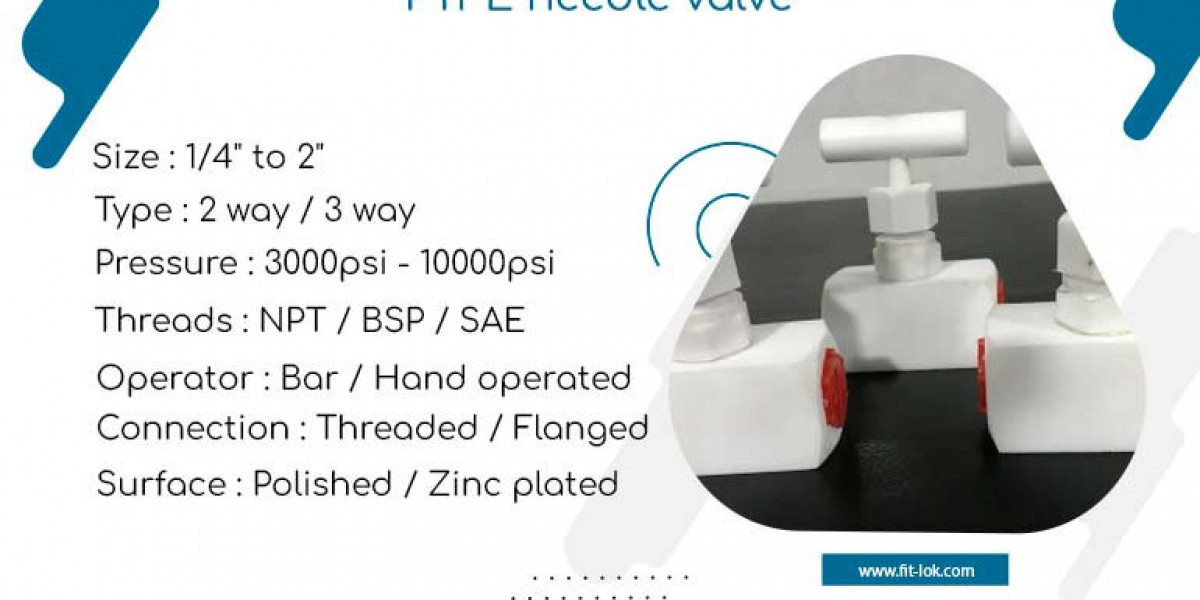What Is a PTFE Needle Valve? A Complete Guide
A PTFE (polytetrafluoroethylene) needle valve is a type of precision control valve used to precisely control the flow of gases and liquids. These valves are frequently found in sectors including chemical processing, pharmaceuticals, and laboratories that need precision flow control. Because of its remarkable chemical resistance, PTFE is the perfect material to handle corrosive and aggressive media.
How a PTFE Needle Valve Works
A tiny, tapered plunger that resembles a needle and inserts into a matching seat makes up a needle valve. The plunger slides up or down as the valve is turned, giving the flow rate exact control. Excellent resistance to chemicals, high temperatures, and wear is ensured by the use of PTFE in the valve body and seals.
Key Features of PTFE Needle Valves
High Chemical Resistance: PTFE is highly resistant to a wide range of chemicals, including acids, bases, and solvents, making it ideal for corrosive environments.
Precision Flow Control: The fine-threaded stem allows for gradual adjustments, providing accurate flow regulation.
Temperature and Pressure Resistance: PTFE needle valves can operate in a broad temperature range and withstand moderate pressures.
Non-Contaminating Material: PTFE is non-reactive and does not contaminate the fluid passing through, making it suitable for pharmaceutical and food applications.
Durability and Longevity: PTFE's low friction and high resistance to wear extend the valve’s lifespan.
Applications of PTFE Needle Valves
Chemical and Petrochemical Industries: Used for handling aggressive chemicals and ensuring controlled flow in processing plants.
Pharmaceuticals and Laboratories: Ideal for applications requiring purity and precision in fluid control.
Food and Beverage Industry: Ensures non-contaminating flow control for food-grade materials.
Semiconductor Manufacturing: Used in processes that require ultra-clean and chemically resistant components.
Installation and Maintenance
A PTFE needle valve is simple to install; to stop leaks, it must be properly aligned with the pipeline and have tight connections. Checking for wear, making sure the plunger glides smoothly, and changing seals as needed are all part of routine maintenance. Compared to metal valves, PTFE requires less maintenance because of its self-lubricating qualities.
Conclusion
A PTFE needle valve is a crucial part of industries that demand chemical resistance and precise flow control. It is the material of choice for handling high-purity and corrosive fluids because of its exceptional qualities. Its durability and best performance are ensured by being aware of its features, applications, and upkeep.










